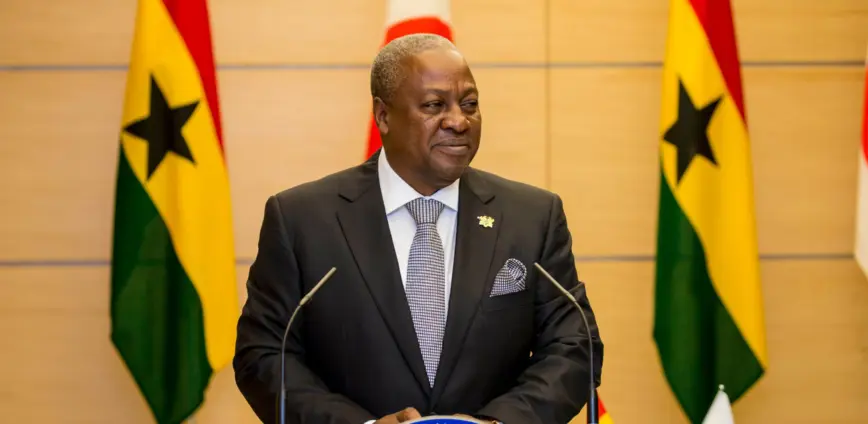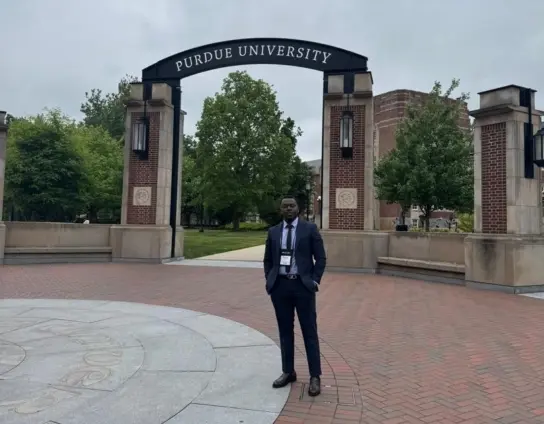Accra, Ghana – The debate over Ghana’s recent economic stabilization has intensified, with Hon. Isaac Adongo, Chairman of Parliament’s Finance Committee, asserting that President John Dramani Mahama’s leadership is the primary driver behind the positive shift. Adongo’s claims directly challenge assertions that previous gold reserves are responsible for the current economic gains. As Ghana edges closer to the polls, the veracity of these competing narratives becomes increasingly significant. Adongo’s central claim is that disciplined economic policies enacted under Mahama’s watch have rescued the economy, marking a turning point and distinguishing it from previous administrations. But do the claims hold up?
Adongo has specifically refuted claims made by figures such as former Finance Minister Dr. Mohammed Amin Adam and Dr. Mahamudu Bawumia, dismissing their suggestions that inherited gold reserves are the key to Ghana’s economic improvements. He labeled these assertions as “disingenuous” and “devoid of factual basis,” arguing that the country’s improving economic indicators are not the product of inherited reserves but rather “the result of deliberate, disciplined, and coordinated economic policy under the Mahama administration.”
“If reserves alone were the answer, why was the cedi hovering around GHS17 to the dollar in 2024 when Dr Bawumia and Dr Amin were managing the economy with those same reserves?” Adongo asked in a recent press statement. He argues the instability experienced under the previous administration disproves the idea that reserves alone can guarantee economic stability. Adongo posits the real reason for Ghana’s economic uptick lies in the specific policy choices enacted during Mahama’s tenure.
According to Adongo, a cornerstone of Mahama’s economic strategy has been a renewed focus on investor confidence, transparency, and overall economic credibility. This approach, he contends, has been pivotal in steering Ghana away from economic instability. Another key element, according to Adongo, has been curbing government borrowing, instilling greater financial discipline and restoring faith in Ghana’s economic management.
“This is not a fluke… We are seeing the results of President Mahama’s focus on investor confidence, transparency, and economic credibility,” Adongo stated, emphasizing the tangible outcomes of what he describes as a calculated and strategic approach. Beyond the broad strokes of fiscal discipline, Adongo highlights specific initiatives, most notably the GoldBod programme, as evidence of targeted interventions yielding positive results.
The GoldBod programme, designed to curb gold smuggling, has also played a crucial role, according to Adongo. By formalizing the gold sector, the government has increased foreign exchange inflows, strengthening the cedi and showcasing the potential of local resources to drive macroeconomic stability. “By encouraging formalisation in the gold sector, we’ve increased our export revenues, strengthened the cedi, and shown how local resources can be leveraged for macroeconomic stability,” Adongo explained.
Furthermore, Adongo points to improvements in transparency within the forex market and enhanced investor communication by the Bank of Ghana as contributing factors to the improved economic outlook. These measures, he argues, have instilled greater confidence among investors and fostered a more stable economic environment.
Adongo also highlighted key economic indicators. “Interest rates are falling. Inflation is coming down. The yield curve is normalising. All of these are fruits of the trust Ghana’s business community and development partners are placing in President Mahama’s leadership,” he stated. These improvements, he argues, signal a broader trend of economic recovery and stability.
Adding further credence to this narrative, Adongo points to S&P Global’s recent upgrade of Ghana’s credit status. This upgrade, he asserts, is not attributable to gold reserves but rather a recognition of the government’s commitment to debt sustainability and disciplined fiscal management. “S&P didn’t upgrade us because of gold reserves. They did so because they see a clear path to debt sustainability, backed by disciplined fiscal management,” Adongo emphasized.
Addressing political counterclaims, Adongo critiqued what he described as the NPP’s tendency to claim credit during economic recovery while blaming external factors during downturns. He emphasized leadership as the primary driver of economic outcomes. “When the economy was crashing, they blamed COVID, Ukraine, and everything else. Now that it’s recovering, they want the credit. But the Ghanaian people are discerning. They know leadership is the cause, and all other things are effects,” Adongo stated.
Adongo reaffirmed that President Mahama remains focused on his pledge to Ghanaians, undistracted by “those whose records are defined by haircuts, obnoxious taxes, and neck-breaking inflation.”
Isaac Adongo’s statements articulate a clear argument: Ghana’s economic improvements are the direct result of President Mahama’s leadership and strategic policies, not merely a consequence of inherited gold reserves. Fiscal discipline, the GoldBod programme, and improved transparency are presented as key factors driving positive change, leading to improved macroeconomic indicators and a more favorable outlook from international ratings agencies. As Ghana prepares for upcoming elections, the extent to which this narrative resonates with voters remains to be seen. The assertions made by Adongo will undoubtedly face scrutiny, and further investigation into the underlying data and independent analysis are crucial for a more comprehensive understanding of Ghana’s economic trajectory.
Image Source: MYJOYONLINE





















